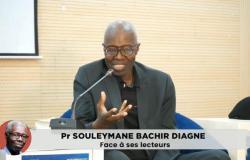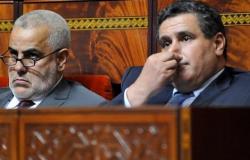Thiès, January 19 (APS) – The city of Thiès has initiated “extensive consultations” with mining companies established in the region, in order to make them contribute to the development effort, we learned from its mayor, Babacar Diop.
Speaking on the sidelines of a forum on the governance of mining resources in the Thiès region on Saturday, Babacar Diop revealed that the municipality he heads has engaged in “broad consultations, in order to find ways and means” to involve mining companies “in the development effort”.
He raised the issue of equitable distribution of natural resources, as a source of stability in a democratic society.
»The basis of the question being asked is the question of social justice in our societies […]the main source of conflicts in human societies,” said Babacar Diop.
“I am talking about the distribution in its entirety, the distribution of rights [mais] also resources in a society,” insisted the councilor.
According to him, since “natural resources belong to the people”, as stipulated in the Constitution of Senegal, they must be subject to “equitable distribution”.
“The big problem is how to organize (this) equitable distribution,” he added.
Stressing the importance and necessity of holding such meetings, in the hope of “nourishing dialogue”, he believes that such debates should help the authorities to correct the situation, for “an equitable distribution” of natural resources.
-A distribution of resources on the basis of equity is likely to guarantee “confidence and stability in a democratic society, and makes it possible to build stable institutions,” said Babacar Diop, who also teaches philosophy at Cheikh Anta Diop University in Dakar.
“An open state today cannot fail to encourage investment (by) multinationals” to help it exploit its natural resources, he said.
There remains these multinationals “do not come as philanthropists, they come to make money”, admitted the councilor, according to whom “the increase in wealth is acceptable and tolerable on one condition: that it can support the development of communities”.
»If their investments contribute to polluting the atmosphere, exploiting, overexploiting the populations and further impoverishing (them), while the resources leave the country and (benefit) others, from that moment on, it is a question of justice that arises,” he insisted.
The question is therefore how multinationals can concretely contribute to improving the living conditions of populations, he suggested.
BT/ADI/BK





